Headphones should not be permitted in classrooms
Listening to music decreases student productivity
An ideal school environment would be one in which peace and quiet allows for productive work. Unfortunately, headphones are not a part of this equation, even though some students may convince themselves that listening to music during work helps them concentrate.
But how do they really help? Does blasting music through your headphones help solve mathematical equations? Does listening to the latest Kendrick Lamar song help figure out the impact of the Silk Road on trade?
In reality, it is one’s brain that allows for cognition. Headphones are an unnecessary luxury in the classroom.
In the hallways? No problem with that. During lunch or Highlander Time? Not an issue. But when the bell rings and class starts, headphones should be kept away unless the teacher believes they are necessary for learning.
In fact, listening to music has been linked with a decreased ability to focus. The Wall Street Journal cites a 2012 study of 102 college students from Taiwan that linked listening to music with lyrics to lower scores on concentration tests.
Assistant Principal Kate Stavish said that, unless specifically instructed, headphones should not be in the ears of students during class.
“If they are in a classroom setting, then the expectation for us is that the earbuds are not in the ear and that they are focused on their learning,” Stavish said. “As we get into the world of multitasking, we as people think we can handle everything at once. But our brains are not wired to handle everything. That is why in class and for learning purposes, we should focus on one thing.”
It is understandable that not all homework requires such critical thinking skills. In this case, listening to music at one’s house for easy independent work is acceptable. However, this is where the relationship between music and schoolwork should end.
Wearing headphones also creates a disconnect in communication between two people. The informality of having two earbuds in place while talking to a teacher, administrator or fellow student can appear disrespectful.
Biology teacher Catherine Hott thinks that the ability to listen to music without getting distracted depends on the student and type of music. However, a reliance on music while attempting to complete work leads to trouble when music is not permitted.
“If a student is always using music during work, it can be hard to transition to a test-taking environment,” Hott said. “Students should study in the same way they would prepare for a test.”
Students believe that music with lyrics can help them focus better and improve their scores on assignments. Sophomore Roy Jonkers feels that music can often create a relaxing atmosphere while doing work.
“Overall, headphones are very useful during class as they can help you get through the lesson,” Jonkers said.
However, if a student is simply trying to get through the lesson, it indicates that they should be putting more effort into understanding the concept. Listening to music does not fulfill this expectation.
Additionally, a high school student may not necessarily realize when their productivity is being harmed by the use of headphones. A student cannot count on themselves to stop listening to music if they get distracted.
At the end of the day, there is simply no need for headphones in the classroom. The classroom is a place for learning and engaging with class content and fellow students—not for blasting the latest Taylor Swift album. Headphones provide a distraction and lead to lackluster communication between peers. Therefore, they should not be permitted unless otherwise specified by the teacher of the class.
After all, getting a good grade is more hype than any Kanye album could be.
Your donation supports the McLean High School's independent, award-winning news publication.





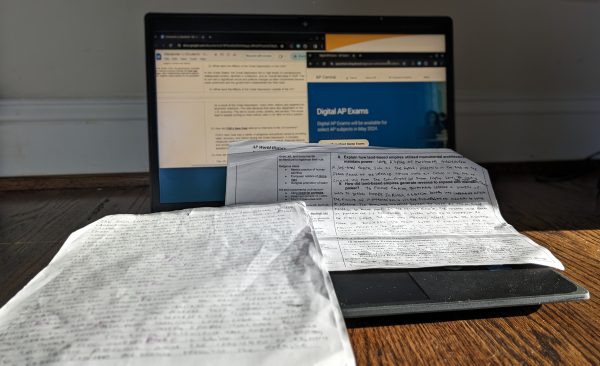
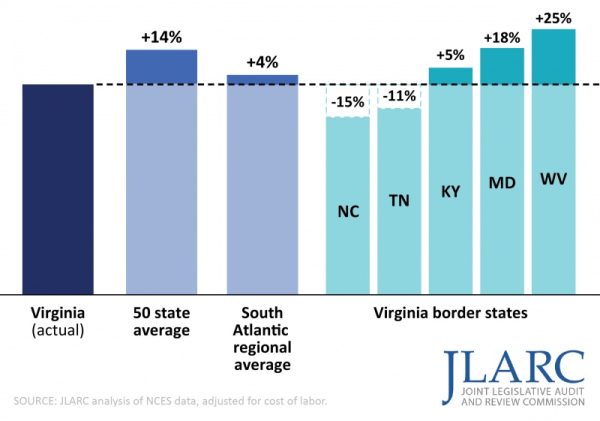
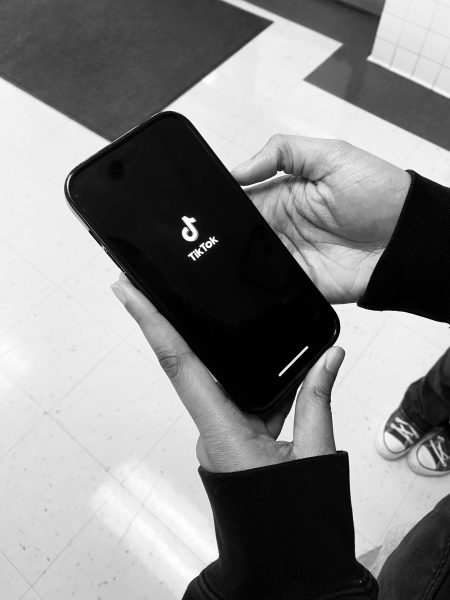



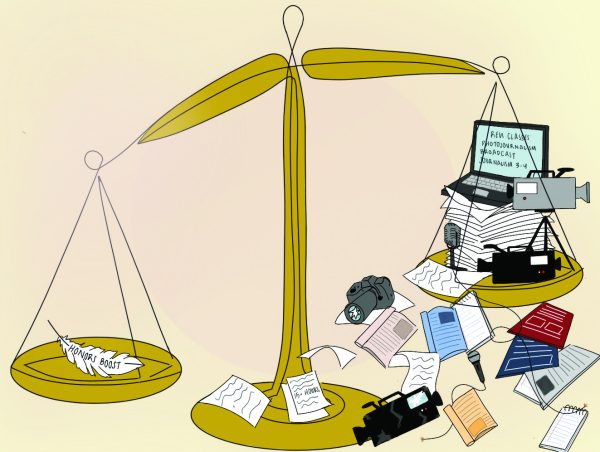
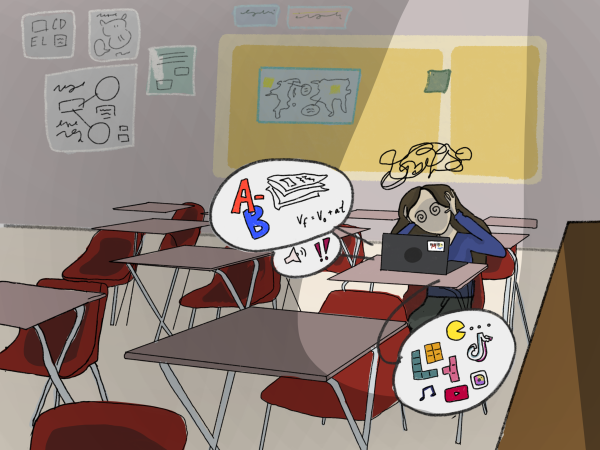
Osa • Apr 10, 2024 at 11:19 am
You do NOT know what your talking about what the hell is this fun fact peoples brains are different. have you even though about nerodivergent people maybe educate yourself first before you useless ramble
pierce • Sep 5, 2023 at 11:42 am
I would to see the stdys sited in this
Allie • Jan 10, 2021 at 2:26 pm
I think it is a controversial topic, I have a hard time focusing in a school environment and I usually use earbuds to block out the tapping and talking and stuff like that it sorta gives me a locked in a tight box vibe, it makes me uncomfortable I. Complete silence and loud noise both make me angry and lash out so I tend to listen to music and focus on my work. So really it depends on the student. I feel like every school should have a waver for students and parents to sign so if the child focuses better on their work with headphones they can.
Brook Yohannes • Feb 15, 2022 at 4:37 pm
ok
lexx • Dec 5, 2022 at 7:23 pm
same here
Josh • Feb 15, 2023 at 9:09 am
Yes me too. This website dont know what theyre talking about